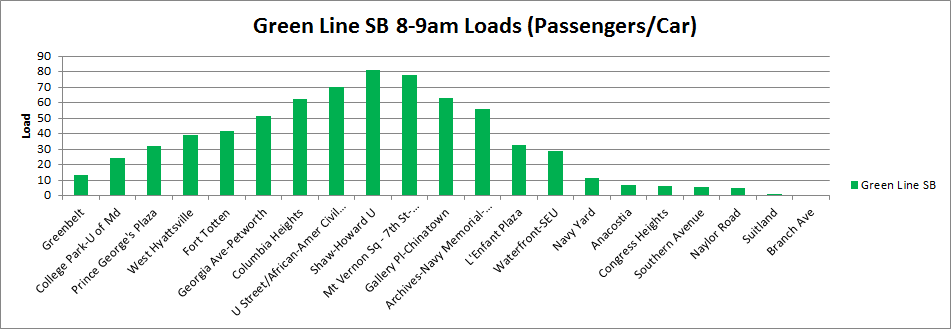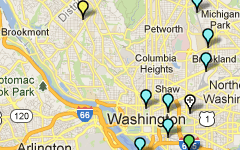Metro Develops New Tool To Assess Transit Crowding
Our new “Line-Load Application” is expected to provide more accurate reports of system crowding by segment.
We recently finished testing a new version of the Line Load Application, a custom-developed application that distributes the load of passengers across the Metrorail system based on their points of entry and exit. This application allows us to estimate the passenger loads on rail system per segment (rail between stations). It is very important for Metro to be able to track the passengers per car across the rail system, both for peak hours on average weekdays and before and after special events. Because the new system is based on rail schedules, each passenger is assigned to an individual car for the assessment of passengers per car (PPC).
Our current method of assessing passenger crowding is by stationing rail passenger counting personnel at key stations during peak periods, approximately twice per month per station. Because the inputs to the new application are faregate entry and exit data, this application is providing data like Metro has never seen before, including load factors and passengers per car for all stations at all times of the day.
Upon review, the output data from this tool appears to match expectations of passenger loads at major checkpoints in the system during peak periods with no disruptions. Output from this tool covering non-core checkpoints and non-peak periods will be validated soon.
In the next phase of improvements for this application, we will work to incorporate actual train arrival and departure times as an alternative to using schedules. This will allow us to understand the actual conditions our customers experience during service disruptions or after special events.
The completion of the development of the Line Load application comes at a point in time when Metro is striving to increase safety and relieve the crowding on the rail system, both of which are major topics of our new strategic plan, Momentum.



Great stuff! It’s really useful to have an automated, constant pulse of the passenger loads. It will help us start to monitor congestion in a truly multi-modal fashion (http://greatergreaterwashington.org/post/20133/congestion-isnt-just-about-highways/).
Sounds like a great tool. Can you provide information from this on the afternoon rush-hour ridership on the Blue and Orange lines?
As Metro gets closer to putting the Silver Line into operation, this data would be great for better understanding Metro’s allocation of the Rosslyn tunnel space across the Blue, Orange, and Silver lines.